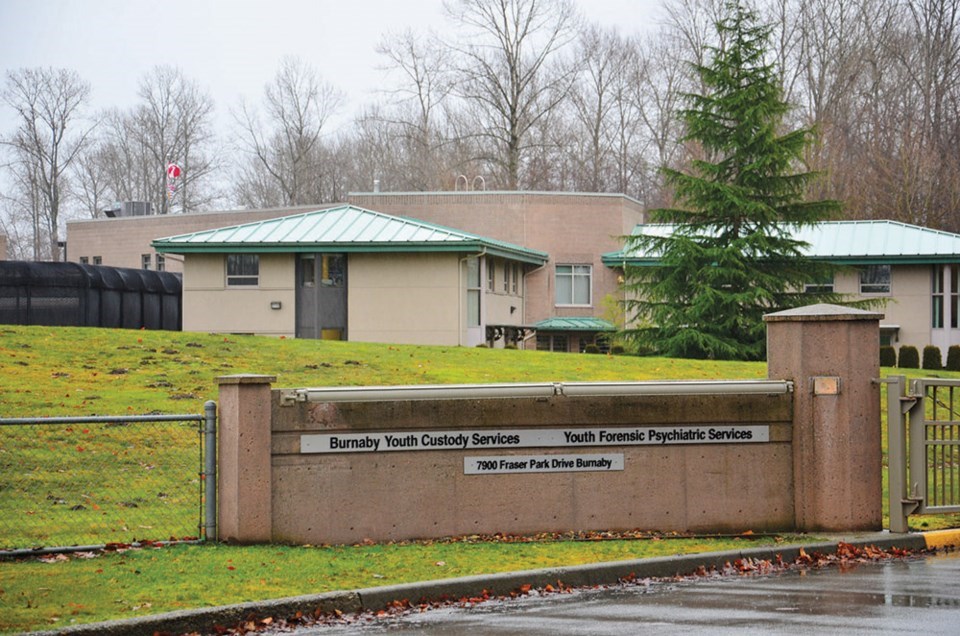B.C.’s ombudsperson is calling for change after an investigation that revealed a bleak picture of self-harming and suicidal youth kept in prolonged isolation at a Burnaby correctional facility.
In a report released Tuesday, Jay Chalke said his office had launched a three-year investigation into the use of solitary confinement at B.C.’s youth jails after complaints from youths who had been put into so-called “separate confinement" at the Burnaby Youth Custody Services Centre.
From 2017 to 2019, the probe found total cases of separate confinement declined along with the number of youth in custody, but the average duration of separate confinement at the Burnaby centre tripled.
The investigation zeroed in on 33 cases (all but one at the Burnaby centre) where youth were isolated for more than 72 hours and found prolonged isolation was most commonly used on youth who were self-harming or suicidal.
“Prolonged periods of isolation for these reasons were experienced almost exclusively by Indigenous and racialized girls,” states the report.
A catch-22
Three youth in the investigation were found to have been isolated for especially long periods: 38 days, 41 days and 47 days – and one was found to have been separately confined for 78 days over an 81-day period.
“The unit most often used to separately confine youth was a dismal and unwelcoming space – noticeably darker, starker and less well maintained than regular living units,” says the report of the Burnaby facility. “Staff routinely communicated with youth through the slot in their door, and we found that this was a barrier to youth receiving mental health care.”
The ombudsperson investigation, which also looked into separate-confinement cases at the Prince George Youth Custody Services Centre, found social isolation “contributed to a decline in the youths’ mental health and an escalation of self-injuring and suicidal behaviour.”
A mental-health clinician quoted in the report noted youth in separate confinement find themselves in a catch-22.
“(The youth) is being kept in the (isolation unit) for their safety (and the safety of staff), so when (the youth) talks about wanting to hurt themselves, and others, people feel (the youth) needs to remain in the (isolation unit),” the clinician wrote. “However, remaining in the (isolation unit) contributes to the further deterioration of (the youth’s) mental health by having them essentially stuck in a ‘fish bowl’ with limited programs and interactions. This results in (the youth) feeling hopeless and continuing to engage in suicidal and homicidal ideation.”
B.C.’s Youth Custody Regulation allows youth to be confined separately if they pose a risk to health or safety and no alternatives are reasonably available.
The regulation states that separate confinement should continue for no longer than necessary, but Chalke’s report concludes the regulation is unjust because it allows for prolonged and indefinite isolation and the mechanisms of oversight currently in place are inadequate.
“Decisions to separately confine youth – even for long periods of time – are routine rather than ‘unusual and extreme,’” states the report.
Chalke’s report makes 26 recommendations to the Ministry of Children and Family Development, including changes to legislation and regulations, an independent review of the use of force in youth custody, the creation of an independent review body, regular inspections of youth custody centres, and the development and implementation of trauma-informed alternatives to separate confinement that includes access to educational, mental health and cultural supports.
'Spirit and intent'
In a statement, Children and Family Development Minister Mitzi Dean said the ministry accepts “the spirit and intent of the recommendations” and will incorporate them into the development of a youth justice framework.
“We recognize the implications that separate confinement can have on a youth’s mental health and wellness, particularly for Indigenous and racialized youth who have been disproportionately affected by this practice,” she said.
But Dean noted B.C. has the lowest youth custody rates in Canada, and sometimes girls are in custody by themselves.
While the ministry doesn’t consider that separate confinement, Dean said the ombudsperson had included those circumstances in the report.
Chalke said he was “encouraged” that the ministry has “committed to implement the recommendations” but said the “pace of implementation” it has set out “reflects a concerning lack of urgency.”
“It is time to give these issues – and these young people – the priority they need,” Chalke said in a news release about the report.
The office of the ombudsperson investigates complaints against provincial and local authorities.
Follow Cornelia Naylor on Twitter @CorNaylor
Email [email protected]



